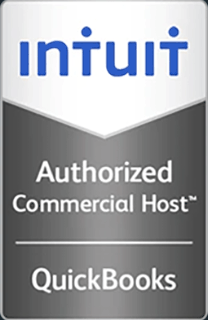Cloud 101 for Real Estate Brokerages: Four Myths in Need of Retirement
Adam Stern | CRETECH
Cloud migration involves placing applications (and potentially much more) off-premises and online, shifting the focus from locally-based technology to remote access and deployment. While some real estate brokerages – local offices and parent firms — are likely to continue buying hardware, the pace of cloud migration continues to accelerate as more and more applications become cloud-ready.
What’s behind the decision to remain with an in-house solution or embrace cloud server hosting? A small to midsize real estate brokerage reaches that fork in the road because it has pushed its local technology to the end of its useful life and now needs to do something about it.
Those making the shift have heard the benefits of cloud server hosting – flexibility, cost savings and access to data for employees wherever they are. They might have recognized that brokerages that adopt cloud technologies enjoy higher revenues. And the odds are good that they’ve come to realize that some brokerages are losing money, trapped as they are on the “technology rollercoaster” – that pattern of buying, deploying, depreciating and then dumping – costly (and quickly obsolete) hardware, and that they can avoid that fate by using a cloud server. Reputable cloud hosting providers deliver more uptime, security, privacy and tech support than was either affordable or even conceivable during the home-brew, pre-cloud era.
When tinkering with technology – or, more accurately, not tinkering with it yourself but entrusting others to handle the often-baffling mechanics, being able to distinguish fact from myth is a big down payment on peace of mind.
Here are four myths that can’t vanish soon enough:
- Myth: The cloud poses security risks. The fact is, your real estate brokerage – that is, your data — is considerably safer in the cloud than beached on equipment under someone’s desk. Any cloud provider worth its salt brings to the task a phalanx of time-tested tools, procedures and technologies that ensure continuous uptime, regular backups, data redundancy, data encryption, anti-virus/anti-malware deployment, multiple firewalls, intrusion prevention and round-the-clock monitoring. And that’s just for openers.
- Myth: Cloud migration means changing your applications and your ways of doing business. Done right, cloud computing is holistic and transparent (you might even say invisible). That is, an agency’s entire compute environment can be placed in – and then thrive — in the cloud, and employees can access applications and data wherever they are. Outwardly, virtually nothing has changed. And because cloud migration is all about ensuring continuity — moving from an on-premises IT presence to a hosted environment under the care of cloud specialists — no internal processes and procedures need to change, either.
- Myth: Cloud computing costs more than on-premises computing. Increasingly, the numbers favor the cloud – and numbers are just part of the equation. Indeed, the cloud has become a genuinely good value. Because the cloud requires zero outlay for computer hardware and (typically) modest monthly fees for applications and maintenance – with such under-the-hood essentials as storage, backup, security, disaster recovery, round-the-clock support, etc. baked in – the economic argument is compelling. With depreciation cycles taken out of the equation, compute horsepower truly is a bargain. It’s entirely possible for a small or midsize real estate brokerage to spend $10K a month and tap enough compute power to drive a 1,000-user organization – certainly more than most actually need, but a comforting statement about economies of scale.
- Myth: The cloud makes compliance issues more difficult. In countless areas of real estate, compliance isn’t optional. And that often means achieving it is viewed as burdensome, especially for brokerages of modest size. Because cloud providers are literally wired for security (see Myth #1), migrating to the cloud turns out to be the surest route to painless compliance, whatever the specialty. Indeed, cloud-based hosting plans incorporate technologies that fully address today’s regulatory environment, all organized around privacy, security and breach notification. While real estate agencies might be capable of doing various techy things on their own, most would prefer not to do the heavy lifting in-house. And who can blame them?
Even though myths die hard, the experience of cloud migration is proving to be a wise way to ensure peace of mind.





